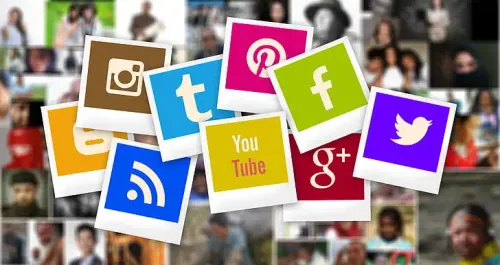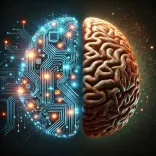Social Media and the Destruction of Human Relationships

Social Media and the Superficiality of Interactions
The Rise of Ephemeral Interactions
Social media has introduced a concept of interaction based on speed and simplicity. It is possible to interact with just a few clicks: a "like", a comment, or a direct message. These ephemeral interactions tend to replace deep and meaningful exchanges, contributing to the superficiality of relationships.
The Importance of Digital Validation
The pursuit of validation through reactions and comments has become commonplace. The value of a relationship now seems to be measured by the number of visible interactions, creating a dependency on virtual social recognition. Users, especially younger ones, base their self-esteem on digital approval, to the detriment of real self-worth and personal satisfaction.
Misleading Connectivity and Social Isolation
Loneliness in a Hyperconnected World
Paradoxically, although social media creates the illusion of global connectivity, it is often a source of loneliness and isolation. Many users suffer from what is known as "digital loneliness": surrounded by virtual contacts, they feel disconnected and isolated in their real lives.
Constant Comparison and Anxiety
By constantly seeing the "idealized" moments of others, users may experience jealousy, inferiority, or a sense of inadequacy. This constant comparison leads to serious psychological consequences, contributing to high levels of stress and anxiety. Additionally, "Fear of Missing Out" (FOMO) adds extra pressure and fuels social isolation.
The Impact of Social Media on Fundamental Human Values
The Dehumanization of Interactions
Social media allows for a certain level of anonymity and distance, which can lead to a loss of human values like empathy, respect, and compassion. Under the cover of anonymity, some engage in hateful remarks, harassment, or aggressive behavior without considering the repercussions.
The Decline of Empathy and Compassion
Virtual interactions can often feel dehumanizing, especially when they occur through messages or anonymous comments. This dehumanization encourages behaviors that likely wouldn’t happen in face-to-face situations, promoting the rise of cyberbullying and the erosion of empathy.
The Question of Privacy and Confidentiality
The Constant Exposure of Private Life
The quest for visibility and validation pushes many users to share highly personal aspects of their lives. This constant exposure erodes the notion of privacy and can lead to a loss of personal identity, as individuals increasingly build themselves around the image they project rather than who they truly are.
Risks to Security and Confidentiality
Beyond the loss of privacy, social media also poses significant risks to security and confidentiality. Personal data is often used for commercial purposes or can be exploited by third parties, exposing users to cybercrime or fraud risks.
The Culture of Comparison and Self-Devaluation
The Negative Effects of Social Comparison
Social media constantly highlights "ideal" lives, fueling an endless cycle of social comparison. This comparison can lead to self-devaluation and dissatisfaction with one's life, creating feelings of inferiority and sadness, especially among young people.
The Impact on Mental Health
Numerous studies show that excessive exposure to social media correlates with higher rates of depression and anxiety, largely due to social comparison. Users find themselves trapped in a vicious cycle of comparison and low self-esteem, often unaware that the images and situations they see are carefully staged.
The Influence of Social Media on the Consumption of Relationships
A Consumerist Approach to Relationships
Social media turns relationships into consumer products, where connections are viewed as numbers or "friends" on a list. This consumerist perspective creates interchangeable and superficial relationships, minimizing commitment and emotional attachment.
The Fragility of Online Connections
Online relationships, often based on shared interests or quick exchanges, are usually fragile and short-lived. Social media promotes the idea that connections are easily replaceable, which can lead to emotional instability and a lack of consistency in interpersonal relationships.
Social Media Addiction: Causes and Consequences
The Mechanisms of Addiction
Social platforms use algorithms and notifications to capture and retain users' attention. These reward mechanisms (likes, comments, etc.) act as addiction triggers, encouraging users to spend more time on these applications.
The Consequences of Addiction on Daily Life
Social media addiction can interfere with daily life, affecting sleep, concentration, and even in-person relationships. Users may find it increasingly difficult to disconnect, which harms their mental and physical well-being.
How to Reinvent Social Media to Preserve Human Values
Toward Ethical and Responsible Social Media
Given the negative impacts of social media, it is essential to rethink its usage to foster more authentic and respectful interactions. This could involve initiatives that promote healthy and conscious use, especially through ethical platforms that value confidentiality and encourage meaningful relationships.
Digital Awareness and Education
Educating users, particularly young people, on the risks and best practices for social media use can play a crucial role. Learning responsible and critical use is essential to counteract the negative effects of social media and foster a more humane and compassionate digital environment.
Although social media has brought numerous advantages in terms of connectivity and information, it is also at the root of significant consequences for human relationships and the essential values that underpin them. The superficiality of interactions, isolation, erosion of values, and addiction highlight the urgent need to rethink our relationship with these platforms. Adopting a more conscious and ethical approach is essential, making social media tools once again serve authentic human connection and mutual respect.





